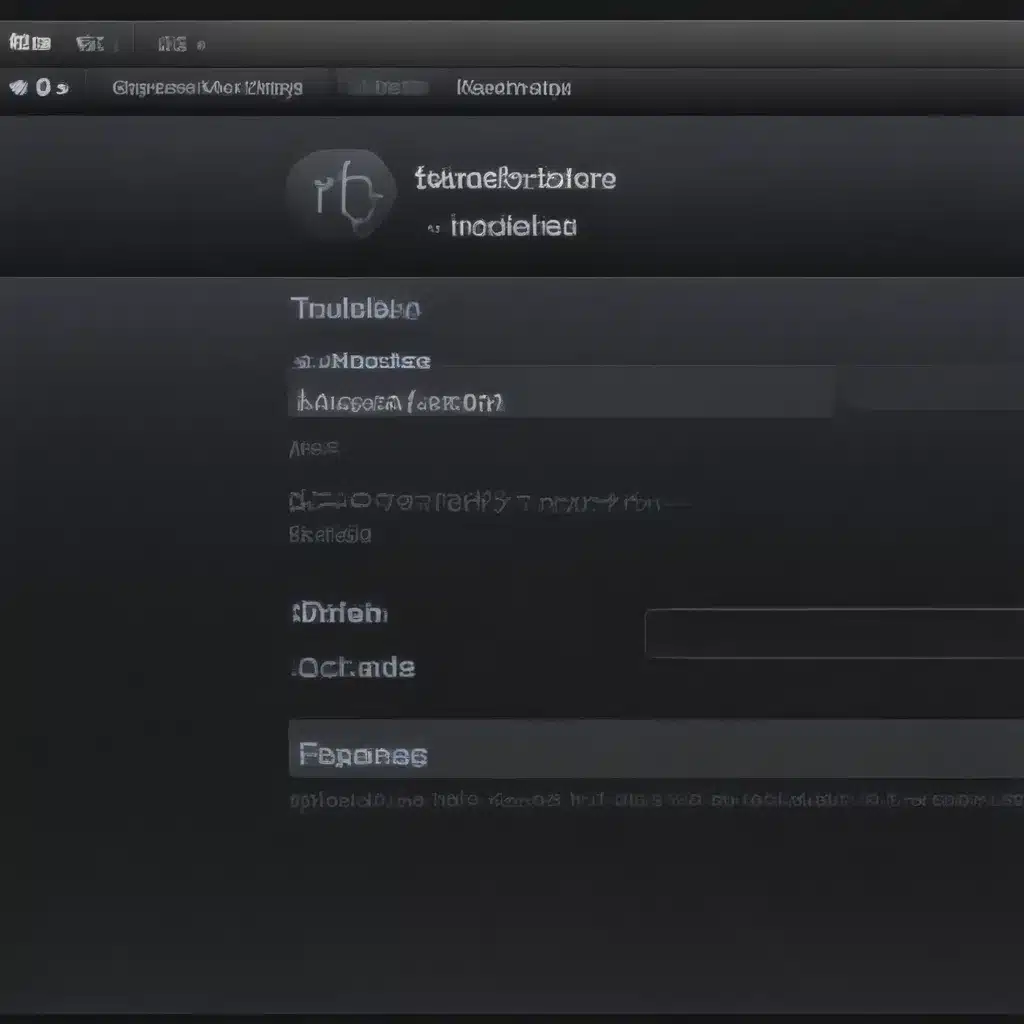The Conundrum of Cloud Storage
I’ll be honest with you – as someone who isn’t the most tech-savvy, the idea of entrusting my precious data to the cloud used to freak me out. I mean, the thought of all my important files, photos, and documents floating around on some remote server, vulnerable to hacking, data breaches, or even just good ol’ server failure, was enough to make my palms sweat.
But as time marched on and cloud storage became the norm, I realized I couldn’t keep clinging to my trusty external hard drive forever. The convenience and accessibility of being able to access my stuff from anywhere was too tempting. Plus, with all the security features and encryption protocols cloud providers were boasting, how bad could it really be?
The Pros and Cons of Cloud Storage
After doing some digging, I learned that the cloud storage landscape is a bit of a mixed bag when it comes to security. On the one hand, major providers like Google, Microsoft, and Dropbox have invested heavily in safeguarding their infrastructure and your data [1]. They employ robust encryption, strict access controls, and rigorous monitoring to keep the bad guys out.
But on the other hand, there are still valid concerns about the inherent risks of putting your data in someone else’s hands. After all, as one Redditor eloquently put it, “you cannot trust the cloud” – local storage is still the way to go for the ultimate in data security [2]. And even the most reputable cloud providers have had their fair share of high-profile security incidents over the years [3].
So it begs the question – can you really trust the cloud with your most sensitive information? Or is it just a disaster waiting to happen? Let’s dive in and explore the pros and cons.
The Cloud’s Security Strengths
One of the biggest selling points of cloud storage is the advanced security measures implemented by the major providers. Take Amazon Web Services (AWS), for example – they have over 1,800 security controls in place to protect customer data [4]. And they give users the option to manage their own encryption keys, ensuring that even AWS employees can’t access your files.
Dropbox takes a novel approach, using a technique called “sharding” to split your data into encrypted chunks and store them in different locations [4]. So even if someone managed to breach their servers, they’d only get their hands on a jumbled mess of useless data fragments.
And Microsoft’s OneDrive offers features like ransomware detection, version history, and a special “Personal Vault” area that requires extra authentication to access [8]. It’s like a high-security lockbox for your most sensitive digital treasures.
The bottom line is that the leading cloud storage providers have made significant investments to earn your trust. They understand that data security is paramount, and they’re constantly innovating to stay one step ahead of the hackers.
The Lingering Concerns
But despite all the fancy security features, there are still some nagging doubts that cloud storage isn’t the panacea it’s cracked up to be. For one, there’s the issue of control – when you store your data in the cloud, you’re essentially handing the keys to the kingdom over to someone else [2]. And as one Redditor pointed out, that means you’re at the mercy of their security practices, their data retention policies, and even government regulations [3].
And let’s not forget about the insider threat. Even with all the access controls and monitoring in the world, there’s still the possibility that a rogue employee at the cloud provider could misuse their privileges and snoop around in your stuff [4]. After all, as the saying goes, “the bad guys always target the password” – and who’s to say a cloud admin hasn’t found a way around it?
Plus, there’s the whole issue of cross-border data flows and conflicting legal jurisdictions. What happens if your data ends up on a server in a country with lax privacy laws? Or if a government agency demands access to your files? These are the kinds of thorny questions that have kept some organizations, especially in highly regulated industries, from fully embracing the cloud [4].
Striking the Right Balance
So where does all this leave us? Well, it’s clear that the cloud storage landscape is a complex and nuanced one, with both considerable upsides and lingering concerns. The key, I think, is to strike the right balance between convenience and security, and to be strategic about what you choose to entrust to the cloud.
For sensitive or mission-critical data, it might be worth considering a more secure, encrypted cloud solution like ProtonDrive or Tresorit [3]. These providers go the extra mile to ensure your information is locked down tight, even from their own employees. And for the truly irreplaceable stuff, a good old-fashioned external hard drive or NAS (network-attached storage) device might still be the way to go [2].
But for the more mundane, day-to-day files and documents, the mainstream cloud providers like Google Drive, OneDrive, and Dropbox can still be a solid option. Just be sure to follow best practices like using strong, unique passwords, enabling two-factor authentication, and being vigilant about suspicious activity [4].
At the end of the day, the cloud storage decision comes down to your own comfort level and risk tolerance. There’s no one-size-fits-all solution, and what works for one person might be a disaster for another. But by staying informed, being proactive about security, and trusting your instincts, you can find the right cloud storage setup that keeps your data safe and sound.
References
[1] Knowledge from https://www.bbc.com/news/business-36151754
[2] Knowledge from https://www.reddit.com/r/DataHoarder/comments/14yvo30/you_cannot_trust_the_cloud_local_storage_is_the/
[3] Knowledge from https://www.reddit.com/r/ProtonMail/comments/oklc60/can_anyone_explain_the_pros_and_cons_of/
[4] Knowledge from https://www.cio.com/article/288469/5-tips-to-keep-your-data-secure-on-the-cloud.html
[5] Knowledge from https://www.quora.com/How-much-can-I-trust-Google-Drive-Is-it-possible-for-Google-Drive-to-lose-data-of-anyone-in-the-long-run
[6] Knowledge from https://blog.1password.com/why-trust-1password-cloud/
[7] Knowledge from https://cloud.google.com/transparency
[8] Knowledge from https://support.microsoft.com/en-us/office/how-onedrive-safeguards-your-data-in-the-cloud-23c6ea94-3608-48d7-8bf0-80e142edd1e1













